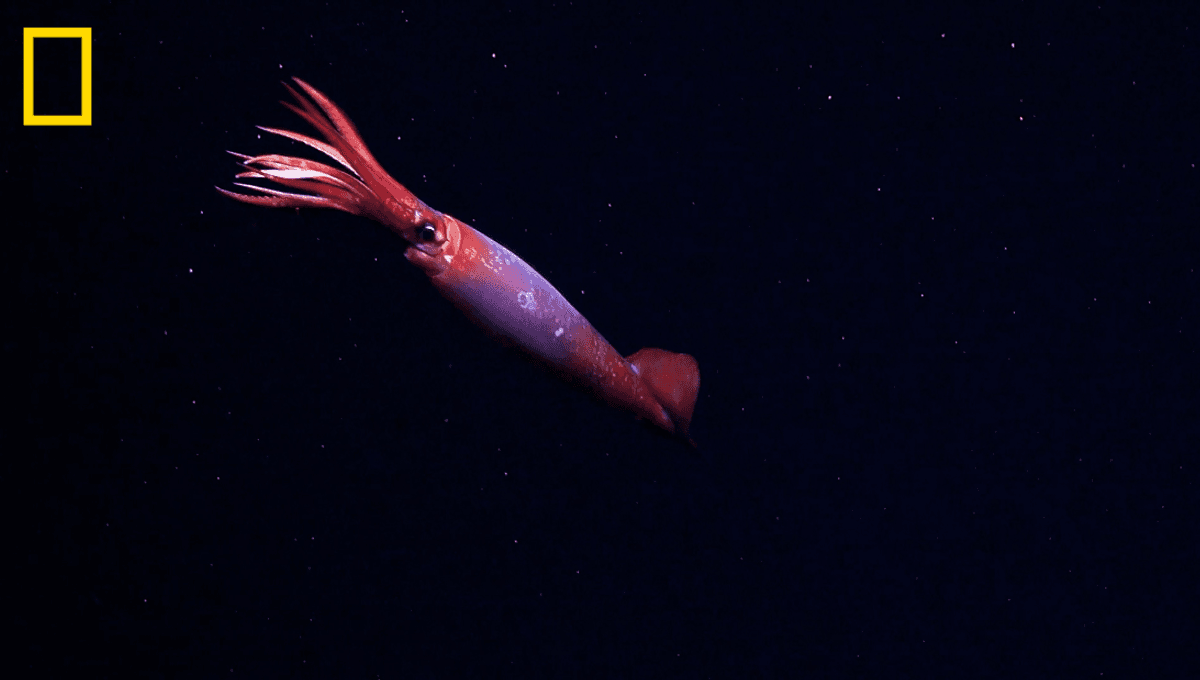
A squid that had previously never been seen alive has been captured on camera by scientists working in the Southern Ocean. Gonatus antarcticus is an incredibly rare deep-sea squid that, as its name would suggest, is only found in freezing Antarctic waters. It made its first live appearance on Christmas day thanks to a fortuitously delayed remote operated vehicle (ROV) launch in the Weddel Sea.
The team of scientists were onboard the Schmidt Ocean Institute’s ship R.V. Falkor (too) when the sighting occurred. They were attempting to take the ROV SuBastian for a spin, but the conditions weren’t playing ball.
It was Christmas Eve and they had hoped to explore the Powell Basin 2,987 meters (9,800 feet) below as part of the National Geographic and Rolex Perpetual Planet Ocean Expeditions. Large blocks of ice meant the launch had to be delayed, and it was that postponement that lined them up for a historic world-first sighting.
“What are the odds?” said postdoctoral researcher at Instituto de Diversidad y Ecología Animal Manuel Novillo to National Geographic. “We were not supposed to be there and not at that precise moment.”
The chance sighting means we’ve got to get a good look at an animal that was previously only known from washing up dead in fishing nets. We have also, on occasion, found their beaks in the stomachs of marine animals, but nothing quite beats a living, swooshing deep-sea squid.
Though alive and kicking and seemingly in good health, the individual wasn’t without its battle scars. In the footage, the team noticed signs of fresh sucker marks on its mantle and scratches on its arms. We don’t yet know how old or what sex it is, but it’s an exciting glimpse into the secretive lives of these incredible animals.
Captured on camera at a depth of 2,152 meters (7,060 feet), it was a stopping off distance on the team’s mission to map uncharted areas of the Southern Ocean’s seabed 4,000 meters (13,123 feet) below. They’ve been collecting data on the health of habitats throughout the water column, and you can expect to find out more about their work and the Gonatus sighting in an upcoming documentary from National Geographic.
For now, go tell your friends: new sea monster footage just dropped.
Like yourself a shiny new squid? Check out the first confirmed footage of a live glacial squid, or find the full story on Gonatus at natgeo.com.
Source Link: First-Ever Footage Of An Incredibly Rare Squid Shows Battle Scars From The Deep